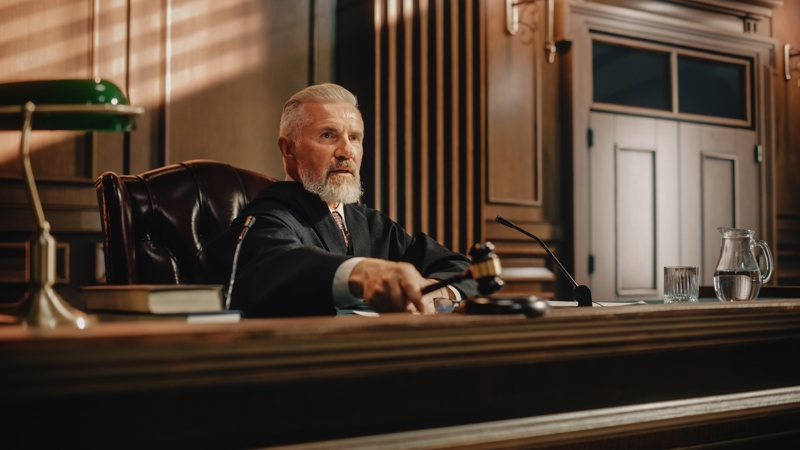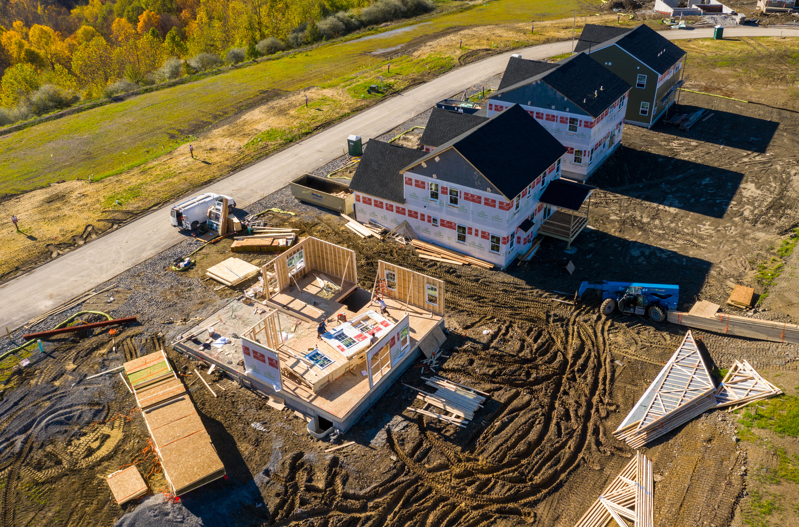
A “First” in Virginia Wetlands Law: A Circuit Court in Virginia Examines a State Programmatic General Permit
Landowner Challenges Wetlands Permit
A lot has been happening in wetlands law recently. In May 2023 the U.S. Supreme Court overturned 50 years of federal agency practice, and opened up much of the nation’s wetlands inventory for unregulated development, with its decision in Sackett v. EPA (click here for my blog article describing that development). Another case from the U.S. Supreme Court, Relentless v. Department of Commerce, decided in June 2024, is roiling environmental law, which includes wetlands law (the case affects all federal agency decision making and is not limited to agencies that administer environmental law). Against that backdrop, it will be interesting to see what sort of reception the Circuit Court for Loudoun County, Virginia, gives to a landowner who is challenging a wetlands permit that was issued in support of the construction of an 81 acre residential neighborhood. The project will destroy almost one acre of wetlands. The landowner who is challenging the permit owns property immediately next door to the proposed new neighborhood. The case is Brainard v. Virginia Department of Environmental Quality, case number 24-2871 (filed May 17, 2024, Loudoun County Circuit Court).

Shutterstock: Gorodenkoff Photography
State and Federal Regime for Regulating Wetlands in Virginia
The Clean Water Act, adopted in 1972, represents the first-ever comprehensive regulation of the nation’s wetlands. My blog article explains the considerations that prompted the federal government to extend legal protection to wetlands. My webinar summarizes how the Federal Government and Virginia regulate wetlands through their respective programs of law and regulation. Virginia, similar to the vast majority of American states, opted not to administer the wetlands laws “in lieu of” the federal government. This does not mean that Virginia has not enacted laws for the regulation of wetlands. Rather, Virginia created a set of wetlands laws and regulations, known as the Virginia Water Protection program (VWP), but Virginia, when it created the VWP, did not aspire to run the wetlands program “in lieu of” the Federal Government. Rather, the federal government’s wetlands permitting program, administered by the US Army Corps of Engineers (USACE), under the authority of the federal Clean Water Act, operates side-by-side with Virginia’s wetlands permitting program, administered by the Virginia Department of Environmental Quality (DEQ), under the authority of Virginia’s State Water Control Law. For this reason, a person proposing to impact wetlands in Virginia must obtain a permit from the USACE and a second permit from the DEQ. In Virginia these two regulatory agencies work closely with one another although our experience is that many of our clients find the DEQ a bit more lenient in its approach, as compared to the USACE.
The State Programmatic General Permit
Especially in coastal Virginia, and to significant but varying degrees elsewhere in the state, just about every economic development project of moderate-or-large size will trigger the need to consider impacts to wetlands. The way that Virginia wields its authority in the arena of wetlands regulation can affect Virginia’s ability to keep its place at or near the top of the national rankings for “Top States for Business”. Virginia exercises near-total control of wetlands permitting under the VWP. The State Programmatic General Permit expands Virginia’s influence well beyond the VWP permit, by giving the DEQ a central role in the USACE’s wetlands permit issuing process for the discrete class of projects described in the particular SPGP. The USACE issued the SPGP to Virginia. In doing so, the USACE created a hybrid structure where it is the DEQ that determines whether and if the applicant qualifies for SPGP coverage. The DEQ communicates its decision to grant coverage to the applicant under the SPGP by issuing a Verification Letter to the applicant. The USACE retains the ability to look over the DEQ’s shoulder while DEQ processes the application for SPGP coverage, and the USACE can intervene if the USACE believes corrective action is warranted. The only other role for the USACE in the SPGP process is for the USACE to arrange for coordination among other federal agency stakeholders who may have an interest in the project because, for example, the project could affect threatened or endangered species (Endangered Species Act), or could affect cultural or historic resources. The particular State Programmatic General Permit at issue in the Loudoun County legal case is the State Programmatic General Permit for Residential, Commercial, Institutional and Recreational projects, issued in June 2022, by the Norfolk District of the USACE, and known as the 22-SPGP-RCIR. A project qualifies for coverage under this particular SPGP ony if the wetlands impacts are less than one acre and the project is in the nature of a residential project, a commercial project, an institutional project, or a recreational project. Click here to see the 22-SPGP-RCIR.

Shutterstock: Steve Heap
The Main Issue in the Case
The federal Clean Water Act has a strong preference for avoidance of wetlands destruction. If the project cannot be carried out in a way that avoids wetlands destruction, then the law requires the project to be designed in a manner that minimizes wetlands destruction. In this latter regard, when harm to wetlands is unavoidable, the loss of those wetlands must be mitigated, typically by purchasing credits in a wetlands mitigation bank (my webinar on Mitigating Impacts to Wetlands explains how this works). The regulations provide that a wetlands permit for the type of project at issue in the case may not be granted “if there is a practicable alternative” that avoids harm to wetlands. In the Loudoun County lawsuit, the neighboring landowner proposed a minimization alternative to the DEQ, one that, if adopted, would eliminate nearly 60% of the wetlands impact by rerouting a road inside the project. The DEQ refused to consider the minimization alternative, opting instead to close out its participation in the SPGP by taking the final step in the process, namely issuing its Verification Letter to the company that applied for the permit, signifying that the DEQ had determined, in the words of 22-SPGP-RCIR, that the applicant met “the informational and technical requirements” for SPGP coverage. With its VWP permit and its Verification Letter in hand, the company that wants to build its residential neighborhood is authorized to proceed.
Posture of the Case
As noted, Mr. Brainard filed a petition with the Loudoun County Circuit Court arguing that the wetlands permit was wrongfully issued because the DEQ refused to consider the minimization alternative that he submitted to the agency prior to the time when the DEQ issued the Verification Letter. The DEQ responded to the petition by filing a motion asking the Court to dismiss the case on procedural grounds, a strategy designed to eliminate the case before the Court has a chance to rule on whether it was proper for the DEQ to refuse to consider the minimization alternative that was presented to the agency. The DEQ argues to the Court that the USACE, not the DEQ, was responsible for all things related to the federal permit and that the DEQ’s issuance of the verification letter was “perfunctory and ministerial . . . simply a means of alerting the applicant that federal general permit coverage has been granted”. Brainard, on the other hand, points to the language in the SPGP that belies the DEQ’s attempt to shift responsibility. Click here to see the 22-SPGP-RCIR. He relies also on language in the Standard Operating Procedure, published by the USACE, stating that DEQ is the agency that “will determine whether the work proposed satisfies the terms and conditions of the 22-SPGP permit”. Click here to see the Standard Operating Procedure.

Shutterstock: DifferR
Outlook
Once the DEQ’s motion is fully briefed, the Loudoun County Circuit Court will hold a hearing and then will decide whether to dismiss the case or, instead, whether to allow the case to proceed to a decision on the merits (i.e. a decision on whether it was permissible for the DEQ to refuse to consider the minimization alternative). Stay tuned for updates!
Conclusion
I and the attorneys with whom I work have strong connections and significant legal experience. As you can tell from the time a few years ago when I stripped off my shoes and got in the water to fend off a criminal enforcement action that an environmental regulator threatened against my client, I go the extra mile to protect our clients, if that is what is needed to get the job done.
Contact me if you would like me to publish more articles on wetlands law. Of course, you can always contact me for advice and assistance in connection with other needs specific to your particular situation.
